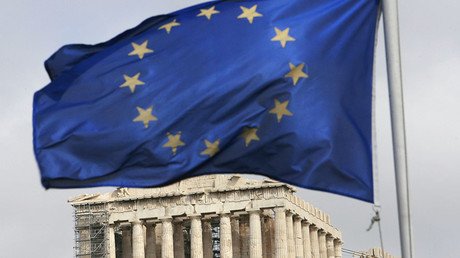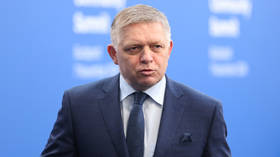European Central Bank made almost €8bn from Greece’s financial crisis

The European Central Bank (ECB) has profited handsomely from its holdings of Greek government debt, according to a document seen by the Financial Times.
A written response to a request from a Greek MEP showed the bank collected €7.8 billion in interest payments between 2012-2016 on Greek sovereign bonds acquired under its Securities and Markets bond-buying program (SMP).
Profits are usually redistributed among the 19 eurozone central banks.
In 2016, the ECB collected more than €1.1 billion in interest payments on the nearly €20 billion worth of Greek bonds it holds, according to German daily Suddeutsche Zeitung.
An analysis from the Jubilee Debt Campaign estimated Greece’s other creditor, the International Monetary Fund, had made €2.5 billion from its loans to the country.
According to Leo Hoffmann-Axthelm from Transparency International, the ECB’s participation in Greece’s bailout had led to a “conflict of interest.”
“The ECB expects repayments on its Greek bonds with one hand while approving Greece’s reform progress with the other. The Bank is literally sitting on all sides of the table,” said Hoffmann-Axthelm.
The SMP program was started at a time of the eurozone’s debt crisis in 2009 was aimed at easing market pressure on the borrowing costs of member states. Later in 2015, the ECB started its quantitative easing (QE) program, but Athens was barred from it because it’s still under the terms of a third EU bailout.
Greece’s inclusion into QE could happen only when the central bank decides the country’s 180 percent debt to GDP is sustainable. Most of the country's near €300 billion government debt is in the hands of international rather than private sector creditors.
“This is a matter of national competence and falls outside the remit of the ECB," said the central bank in a letter to FT signed by ECB President Mario Draghi.
Decisions about what to do with the earnings will be taken by national member states, the letter explained.
“Any future decisions on the transfer to the Greek State of amounts equivalent to the National Central Bank’s (NCB) income do not fall within the remit of the ECB or the NCBs, but rather that of the national governments of the euro area member states,” it said.
Eurozone members initially agreed to hand any interest back to the Greek central bank as a point of EU solidarity. However, when the second bailout program started in 2015, the pay-back operation was halted, and the full interest was never paid back to Athens.















